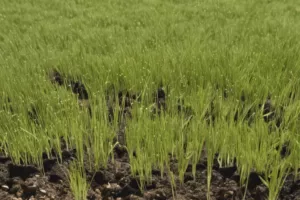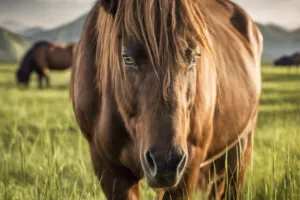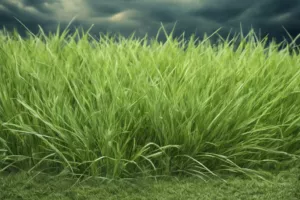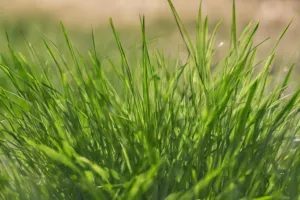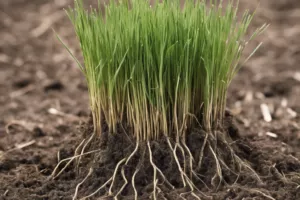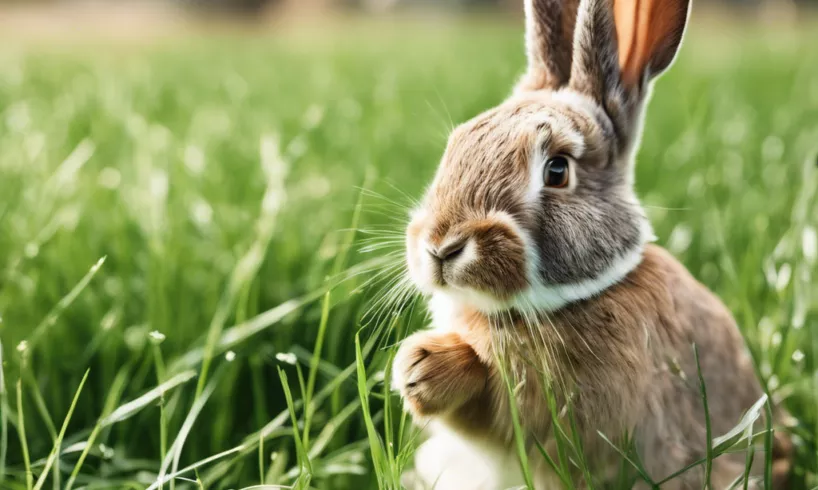
Understanding Buffalo Grass and Its Nutritional Value for Rabbits
Buffalo grass is a hardy, low maintenance turfgrass that is native to North America. It thrives in various climates and is often used for landscaping due to its drought-resistant properties. However, the question often arises, “Can rabbits eat buffalo grass?” The simple answer is yes, rabbits can safely consume buffalo grass. This type of grass provides a source of fiber, which aids in the digestive health of rabbits.
Nutritional Composition of Buffalo Grass
Buffalo grass contains a range of nutrients, including proteins, carbohydrates, and minerals. Its high fiber content is particularly beneficial for rabbits, as it aids in their digestion and helps prevent gastrointestinal problems. Moreover, the low fat and sugar content make it a healthy choice for feeding rabbits.
Components of Buffalo Grass and Their Impact on Rabbits
Buffalo grass comprises several components that can contribute positively to a rabbit’s health. Let’s take a closer look at these components and understand their effects.
Fiber
As herbivores, rabbits require a diet high in fiber. Buffalo grass offers a substantial amount of fiber, which aids in maintaining a healthy digestive system. It helps in the smooth movement of food through the rabbit’s digestive tract and prevents conditions like constipation.
Proteins and Carbohydrates
Buffalo grass also contains proteins and carbohydrates, essential nutrients for a rabbit’s growth and energy needs. Proteins support the growth and repair of tissues, while carbohydrates provide energy for daily activities.
Vitamins and Minerals
Buffalo grass contains vitamins and minerals that contribute to a rabbit’s overall health. Vitamins help regulate body processes, while minerals support bone and teeth health.
Feeding Buffalo Grass to Specific Groups of Rabbits
While buffalo grass is safe for all rabbits, certain groups may benefit more from it.
Young Rabbits
Young rabbits, or kits, may benefit from buffalo grass due to its protein content, supporting their growth. However, introduce new food gradually to avoid upsetting their sensitive digestive systems.
Overweight Rabbits
Buffalo grass’s low sugar and fat content make it a good choice for overweight rabbits. It provides necessary nutrients without contributing to weight gain.
Practical Tips for Feeding Buffalo Grass to Rabbits
Feeding buffalo grass to rabbits can be a straightforward process. Here are some practical tips.
Ensure the Grass Is Clean
Before feeding buffalo grass to your rabbit, ensure it is clean and free from pesticides or other harmful substances. If you are unsure about the cleanliness of the grass, wash it thoroughly before feeding.
Gradual Introduction
When introducing buffalo grass into your rabbit’s diet, do so gradually. Start by mixing small amounts of buffalo grass with their regular food, gradually increasing the quantity as your pet gets accustomed to it.
Moderation Is Key
While buffalo grass offers many benefits, it should not make up the entirety of a rabbit’s diet. Rabbits also need a variety of other foods, like hay, vegetables, and a small amount of rabbit pellets, to meet their nutritional needs.
Rabbits, with their natural inclination towards grazing, typically enjoy buffalo grass. Its nutritional properties contribute positively to their health, especially when incorporated into a well-balanced diet. It’s a natural, beneficial, and cost-effective addition to a rabbit’s feeding regimen.

Bob Green, a passionate lawn care enthusiast with over two decades of landscaping experience, is this website’s proud owner. His vast knowledge of horticulture and dedication to helping homeowners maintain beautiful lawns are reflected in the valuable content he shares on his platform. John has always been interested in Agrostology.









